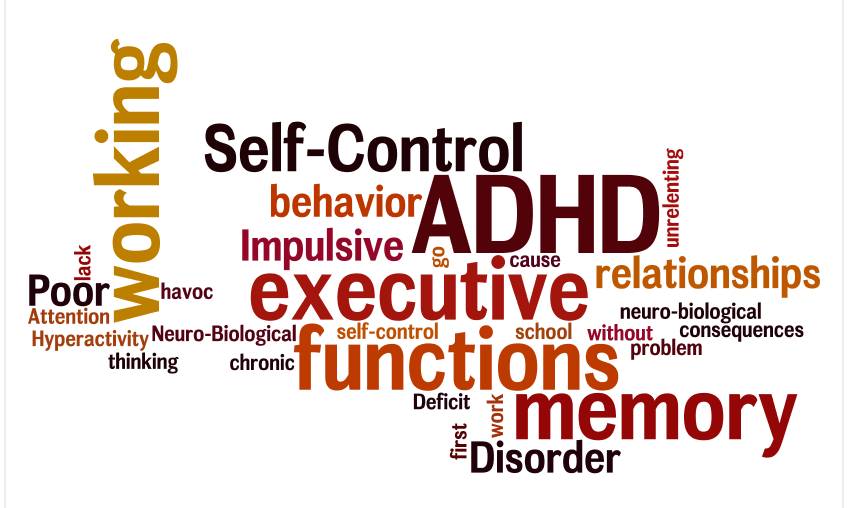Following on the last post about the abuse that has been made to the definition of ADHD, the article published on the April 2014 Monitor on Psychology by the American Psychology Association gives an interesting analysis to this serious topic and the explosion of the demand for ADHD medications.
What exactly is leading to the growing number of new ADHD diagnoses? Is there a true increase in the disorder — or are we simply expanding our definition of it, or are more aware of it? And why is the chance of receiving an ADHD diagnosis twice as high in Southern states as in Western states?
And more importantly, as it is said, like many other disorders, ADHD is assessed by a symptom checklist based analysis, where the criteria definition works perfectly for static realities. Well, in our real world, entities and their actions are much more fluid and complex, as presented in my last post. The importance of this factor is immense, as it underlines that nosological criteria have to be submitted to the spectrum analysis, which is to say that the limits of inclusion and exclusion are not so clear as the DSM, psychologists and other professionals tend to consider.
To prove that science does not exist in the void, the researchers made an interesting conclusion concerning the discrepancy of the rates of diagnosis of ADHD in the US. They came to understand that the more you focus on controlling the factors of performance - and the links that it has to the different levels of education in the society - the more professionals tend to diagnose ADHD.
This means that teachers and schools are often tempted to use the diagnosis of ADHD when dealing with children that have very low performance, in order to justify why students fail to perform at the level that is expected. This doesn't mean that teachers and schools are the ones that are putting the stamp on the disorders and they are crucial in their information concerning the assessment process.
This is also important because it gives a credible explanation to the proved signs of indiscipline and its relation to the underachievement of students. Having been in these situations, where the easy route is to take one of the most accepted and credible labels there is, it is important to be truthful to science and, more importantly, to the children and their uniqueness.
I always recall to this effect, the case of a 8-year-old student that was taking Ritalin and failing at the school, showing signs of inattention, provocation with peers and impulsivity, which were in the outside great candidates for the credible - but abusive - justification of ADHD. One might even ask why he was already taking Ritalin - that falls off the scope of this post -, but the most important aspect here is that this student was going through episodes of Enuresis, Nocturnal and Secondary, according to the DSM-IV-TR. The approach, therefore, focused not on the signs of inattention and impulsivity but, more importantly, on the important signs of the mother-son dyad and attachment concerns that were negative patterns of self-other functioning. Cause vs symptom, map vs territory.
Going to back our case that cultural norms and school policies have great importance in how ADHD and other diagnoses are made and used, the researchers affirm that school policies really seem to matter, in a way that factors such as ethnicity, medical professionals and culture don't. Can we say they're the absolute and only cause of these state and regional differences? No, but they sure seem to be implicated.
If some children really need the medication, others really don't, especially those who take them to enhance their performance:
Assessments of ADHD are often very short and focused on the checklist assessment, which underlines a static analysis of behaviour, as separated from the individual and the ecology that he is part of. Therefore, instead of undergoing assessments that last 10 minutes or 15 minutes, professionals should understand how the symptoms play together not for the diagnosis of ADHD but in the large consideration of the child's uniqueness in the family and the context of life. It may be that at the end, the diagnosis is *really* ADHD, with predominant signs of inattention or impulsivity, but even if that is case, the label will be in accordance to a global assessment and the intervention will respond accordingly. This makes a very significant difference for children and their families. On top of everything, it is the right thing to do.
And we should focus on influencing the current tendency to dehumanise individuals by recurring quick analysis that completely miss the whole point of the assessment.
This recommendation puts it very well:
Psychologists are the gatekeepers, and they have a lot of responsibility to look into this and make sure they take the time to look into the school, societal and parental pressures while doing a careful diagnosis.
In addition, treating the kid without getting the family and the school involved is not optimal. The problem with an ADHD diagnosis is that it's a catchall for lots of things. It's hyperactivity, it's focus, executive function and the like, but usually the best treatment is to also consider involving the family and teachers in behavioral strategies to help improve focus, and to have everyone lined up to deal with this.

No comments:
Post a Comment